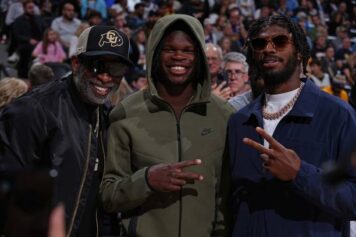54-year-old Rod Jones was a beloved figure at UW, but his suicide has nationwide ramifications.
On Tuesday it was announced former University of Washington tight end Rod Jones, who played on the 1984 Rose Bowl team that won a National Championship, died of suicide. The tragic event has shaken Husky Nation to its core because, not only was he on campus as a player but spent 18 years as academic coordinator for the UW athletic department.
He was only 54 years old. Though the actual reason that anyone takes their own life is rarely entirely revealed to the public, there several reports speculating a recent diagnosis of early onset dementia may have been the reason why Jones took his own life.
Though the public is becoming increasingly more aware of the effects of chronic traumatic encephalopathy on the minds of aging football players, it is only recently that a connection between football and dementia has been made.
Research is at a very early stage, but there is a camp that believes CTE causes dementia, while a growing number of researchers believe dementia can develop in retired players even in the absence of CTE.
According to CNN, of the 111 brains of deceased former NFL players donated to a study, 110 of them showed signs of CTE.
One of the saddest parts about CTE is the arbitrary nature in which it seems to strike. There are some who begin suffering the effects of its symptoms almost immediately following retirement, while in others, as was the case with Jones, the symptoms come along decades after they last played the game.
Former NFL players Terry Luther Long (June 7, 2005), Andre Waters (November 20, 2006), Shane Dronett (January 21, 2009), Dave Duerson (February 17, 2011), Ray Easterling (April 19, 2012), Junior Seau (May 2, 2012) and Aaron Hernandez (April 9, 2017) are all former NFL players who have committed suicide and later been diagnosed with CTE. All of these men played within the lifetime of the average American adult.
Though Jones was a standout at UW, he only played four seasons in the National Football League. What his suicide points to is the growing belief among researchers that concussions at any level of play could lead to CTE or dementia.
Currently, there is no technology to diagnose CTE in living patients. Jones’ family is making arrangements to donate his brain to the Boston University CTE Center for research.



